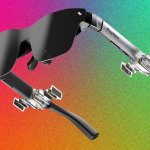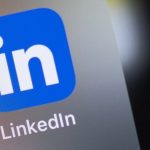To get a roundup of TechCrunch’s biggest and most important stories delivered to your inbox every day at 3 p.m. PDT, subscribe here.
June 13, 2022. You know what that means: It’s Monday! Whether the word fills you with dread or delight, Monday is securely attached to not caring about your opinions about itself. May we all be a little more like Monday in that regard.
Meanwhile, we learned from Darrell that WWDC stands for “wow, what dank continuity,” and whether or not that’s factually accurate, it made us guffaw gleefully.
Tomorrow, a chunk of the TechCrunch team will be at our Climate event in Berkeley, California. It’s not too late to get a ticket and join us in person! — Haje and Christine
The TechCrunch Top 3
- You’re still dangerous, but you can be my wingman anytime: Spotify is acquiring Sonantic. If you haven’t heard of the company, you may know it as the AI voice platform that gave Val Kilmer a voice in the “Top Gun: Maverick” movie, Ingrid reports. We are not clear on the “why” of the acquisition, but it’s noted that Spotify wants to bolster its audio technology game.
- Magic Spoon finds its Target: Direct-to-consumer cereal brand Magic Spoon enters retail as the newest to grace the shelves of Target stores nationwide, Christine writes. For those looking for a healthier, protein-laden breakfast option, Magic Spoon brings it. This comes amid an $85 million Series B round by a group of venture capital and celebrity investors, including Shakira, Russell Westbrook and Halsey.
- One is the loneliest number: Just ask Zendesk. In April, Ron reported the company was under pressure by investors to sell. Well, the saga just got a new chapter after deciding not to sell. As Ron and Alex now tell us via TechCrunch+, one investor (cough, Jana Partners, cough cough) is none too happy with that move.
Startups and VC
We love a “too weird for parody” story, and even as Alex takes a closer look at how crypto takes a sharp turn toward the inner core of the planet, the Winklevii are touring with their Blink-182 cover band. All the small things, indeed. Cool, cool, cool.
Lucas and Anita talked with Andreessen Horowitz’s GP Sriram Krishnan about how he believes the incentive structures of web3 make the space a natural fit for social networking, in the newest episode of the Chain Reaction podcast.
But wait, we occasionally write about noncrypto stuff, too:
- That’ll teach ’em: Prenda built a platform to enable tuition-free microschools of 10 students or fewer. Ingrid reports it raised $20 million in funding to expand.
- Shove it where the sun don’t hide: Natasha L. reports how Glint Solar built a SaaS platform to help developers identify solar project opportunities, as a demand to accelerate the shift to renewable energy continues. It just raised $3 million.
- You may want to have a look at that growth: Just one year old, bttn is shaking up the medical supplies space, closing a $20 million Series A funding to help drive down prices and increase transparency for medical companies, Christine reports.
- Anew, the looking glass: Construction design platform Alice Technologies raises $30 million of fresh capital to make it easier to plan big infrastructure projects, Kyle reports.
8 steps for building a financial model to calculate your fundraising needs

Image Credits: Javier Zayas Photography (opens in a new window) / Getty Images
Every founder needs a data-driven pitch to persuade investors, but how do you ask a stranger to make an eight-figure bet on a company that doesn’t yet exist?
“It can be daunting to even say, ‘I’m looking to raise $20 million,’ out loud and feel like you’ll be taken seriously,” says Blair Silverberg, co-founder and CEO of Hum Capital.
He recommends that founders develop financial models that “project your needs two years in the future and include a 2X margin of safety.”
In a post for TC+, Silverberg shares four data points he uses to determine overall funding requirements, and he details his eight-step process for putting it all together.
“With a believable model, you now have a conversational tool that diminishes bias and focuses the conversation on whether your assumptions are realistic.”
(TechCrunch+ is our membership program, which helps founders and startup teams get ahead. You can sign up here.)
Big Tech Inc.
Lots of news came out of Apple’s WWDC last week, and you all are still clamoring for more. Well, lucky for you, our staff is accommodating. Ivan gives you a look at features Apple created that essentially make others unnecessary, and Darrell focuses on the company’s approach to making all of us healthier. Meanwhile, Natasha reports on a Netherlands competitor agency finding Apple’s payment options for Dutch dating apps are compliant.
As reported last Friday by Manish, Amazon bowing out of going after media rights for the IPL cricket tournament has opened the door for Disney and Viacom18 to enter and go after it instead.
Yahoo!, of which TechCrunch is a part of, appointed a diverse group of new board members from the digital media, private equity and entertainment sectors, most notably, actress and The Honest Company founder Jessica Alba, Amanda reported.
And wait, we have more:
- It wasn’t Astra’s day…again: The rocket company was unable to deliver its payload to orbit. The same thing happened three months ago. It did have a successful mission in March, so there’s that.
- It’s a bird, it’s a plane, it’s your Amazon package!: However, for Lockeford, California, residents, it is your day. The small town, near Stockton, will be “among the first” to get their Amazon package deliveries via drone.
- Chevy’s got the look: There was some debate among TechCrunchers today about the look of the new Chevrolet Blazer EV. Matt is in the “looks good” category but did say, “I still wish General Motors made the off-roader Blazer from the ’70s and ’80s instead of the people mover from the ’90s.”
- DoorDash delivers for customers: The food delivery giant rolled out some new in-app features that give customers a lot more ways to engage, from written reviews to item ratings to knowing what your “most liked” items are.
Powered by WPeMatico






